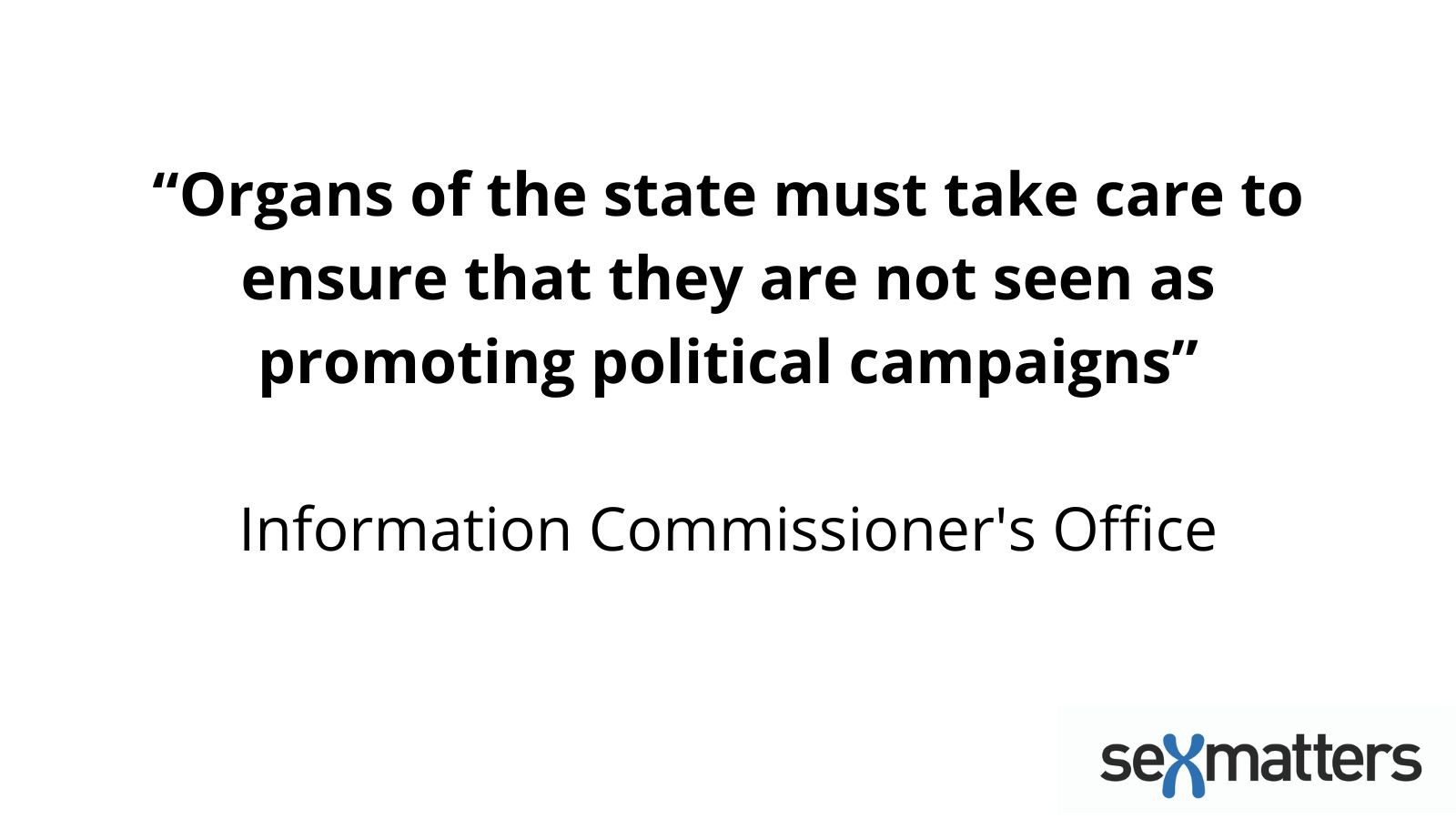Information Commissioner strikes down secrecy of Stonewall scheme

The Information Commissioner has ordered the University of Oxford to disclose the scores and feedback it received from Stonewall as part of the lobby group’s controversial Workplace Equality Index scheme.
Following a Freedom of Information appeal undertaken as part of the “Don’t Submit to Stonewall” campaign initiated by Legal Feminist and Sex Matters, the Information Commissioner’s Office has written a hard-hitting decision that strikes at the secrecy of the scheme.
Stonewall requires organisations to sign a contract forbidding them from revealing either the feedback it gives them, or the actions it recommends they take to win more points. It says that revealing such information would undermine its commercial interests.
But the regulator decided that it was not in the public interest to allow the university to keep Stonewall’s scoring system and feedback secret.
“Organs of the state must take care to ensure that they are not seen as promoting political campaigns”
The Information Commissioner’s Office criticised the secretive scheme, saying:
“Whilst Stonewall is a charity, it is a charity with an agenda to promote. Whilst many may well agree with that agenda, it is not one that is universally accepted. Moreover, even those organisations which do enjoy broad support should not expect their actions to go free from scrutiny.”
It said that the Diversity Champions Programme is “fundamentally a scheme which aims to influence the policies, process and actions of the employers which take part in the scheme […] Organs of the state must take care to ensure that they are not seen as promoting political campaigns.”
The Information Commissioner noted that there is a “potential for a scheme to be misused as a campaigning tool” and therefore a strong public interest in understanding how Stonewall’s scoring works.
“By associating themselves with Stonewall’s brand, employers are bound to chase its approval – if their policies do not match up with Stonewall’s expectations, they will achieve a lower score and hence a lower ranking. That means that Stonewall is able to exercise, through its Index and its Diversity Champions Programme, a significant degree of influence over the policies that participating members operate. Such influence can be used for good and for bad.”
Potential for misuse
In particular, it highlighted the requirement to undertake social-media activity promoting Stonewall’s agenda:
“On the face of it, this seems like a fairly benign requirement but, when it is recognised that Stonewall’s definition of ‘LGBT equality’ is not one which is universally accepted, the potential exists for such a provision to be misused. Stonewall has recently clashed with women’s rights groups over the recognition and rights of transgender people – therefore there would be a public interest in knowing whether an organisation simply needs to signal that it is welcoming of members of the LGBTQ+ community or whether it needs to go further and denounce those whose views do not mirror those of Stonewall.”
The regulator noted that Channel 4, Ofsted, the Cabinet Office and the Equality and Human Rights Commission have all withdrawn from Stonewall’s scheme, saying it no longer represents value for money.
“Given the number of high profile organisations that have withdrawn from the Diversity Champions programme – particularly the UK’s equality regulator (the Equalities and Human Rights Commission) – the Commissioner considers that concern about the operation of the schemes goes beyond a few disgruntled individuals or campaigning groups that might be expected to clash with Stonewall.”
The information regulator also took the opportunity to criticise its fellow regulator, Ofcom, which had included regulatory decisions in the evidence it submitted to Stonewall of work it had done to “promote LGBT equality in the wider community.”
“The Ofcom disclosure indicates that a public authority can get itself confused between its functions – which are supposed to be carried out neutrally and independently – and its desire to score highly. That is not to say that Stonewall, through its schemes, encourages such behaviour, but there is a public interest in understanding how Stonewall would score such actions.”
Dr Michael Biggs, Associate Professor of Sociology at the University of Oxford and a Director of Sex Matters, has previously called on the Vice Chancellor to end Oxford’s membership in Stonewall’s Workplace Equality Index. University College London withdrew from the scheme last year.
No more secrecy
Although it is not binding, the ruling suggests that the Information Commissioner’s Office would make similar decisions in relation to other information requests. This has implications for other public-sector participants in Stonewall’s scheme, including government departments, universities, NHS bodies and local councils, all of which pay upwards of £2,000 a year to Stonewall, and spend more on top of that for conferences and training.
Sex Matters’ analysis shows that 43 public authorities have refused to provide information to the public, giving reasons of contractual confidentially, or concern for Stonewall’s commercial interests. These include:
- BBC
- Brighton & Hove Council
- Cabinet Office
- Channel 4
- Civil Aviation Authority
- Competition and Markets Authority
- Department for Business, Energy & Industrial Strategy
- Department for Digital, Culture, Media & Sport
- Department for Environment, Food & Rural Affairs (DEFRA)
- Department for International Trade
- Environment Agency
- Government Legal Department
- HM Revenue & Customs
- HM Treasury
- OFSTED
- Sport England.
Other universities that have used commercial confidentiality as an excuse include Aberystwyth, Brunel, Staffordshire, Swansea, University of South Wales Group and the London School of Economics and Political Science.
We will now be asking all these public authorities and universities to provide information they have previously withheld.
